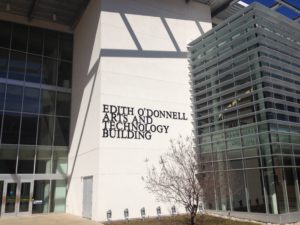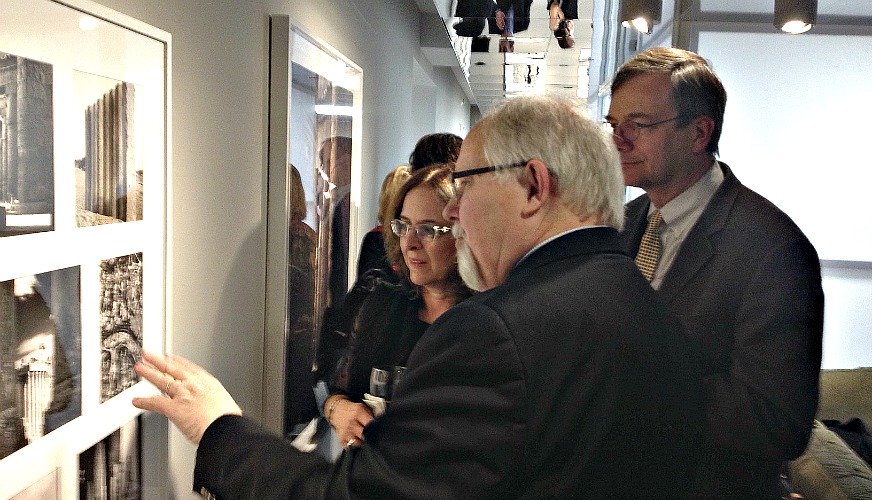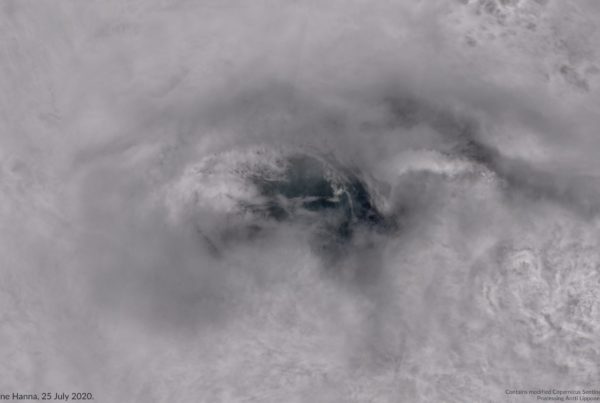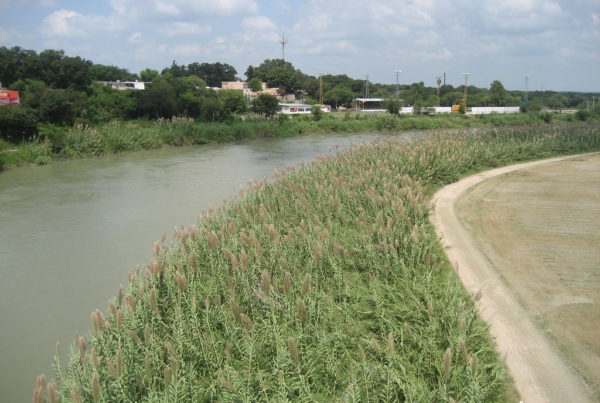From KERA:
The richest arts prize in Texas – the $150,000 Richard Brettell Award in the Arts at UT-Dallas – was named for him. He wrote and contributed to more than two dozen books on French painters and paintings, especially the Impressionists: biographies, histories, monographs, catalogues raisonnés. Two just on Claude Monet, three on Camille Pissaro – his dissertation subject,.
Richard Brettell died Friday at 71. He was a scholar, curator, lecturer and one of the most generative figures in the world of Texas art. He had been battling prostate cancer for years.
Brettell was a curator of European paintings at the Art Institute of Chicago when he was only 30. Before he eventually became a distinguished professor at UT-Dallas, Brettell taught at the University of Chicago, Northwestern, Harvard and Yale – the university where he earned three degrees in art history. He lectured at the Metropolitan Museum of Art and the National Gallery of Art in Washington, D.C. Second only to Harry Parker III – who spearheaded the drive to build the Dallas Museum of Art’s current home in the Arts District – Brettell may well have been the most influential director the DMA has had. And he wasn’t even 40 when he arrived, and he was director for only four years. But when he left the museum in 1992, he was raising $55 million for the DMA’s major expansion with the Nancy and Jake L. Hamon Building. It opened the following year.
Brettell even found time to record three lecture series for the well-known “Great Courses” videos. He is also a significant presence in the KERA documentary, Matisse & Picasso, from 2000.
But more than a museum director, author and professor, Brettell was perhaps most of all a museum builder. He had a real gift for fusing art, scholarship, fundraising – and a vision of what a museum could be. After leaving the DMA, by 2010, he became the founding American director of FRAME (the French Regional and American Museum Exchange), which was designed to promote the exchange of art and information between local museums in France and the United States. Brettell later became the founding director of the Edith O’Donnell Institute of Art History at UT-Dallas, which has a $30 million endowment. He returned to the DMA in 2015 when the O’Donnell Institute opened a new research center on the museum’s second floor.
Then, in what may prove the complicated capstone to his career, in 2018, Brettell snagged the Barrett Collection of Swiss Art for UTD – with its 400 rare artworks. The next year, he topped that by bringing the Trammell and Margaret Crow Museum of Asian Art to the UTD campus — where it will help create a new building to house the collection, in addition to its downtown Dallas Arts District home. He also brought in a sizable Latin folk art collection, some of it donated by the late Roger Horchow.
UTD – which had been founded primarily as a tech and engineering college – has become a major Texas art collector. And a major center for art research. With a major art library – from the Wildenstein-Plattner Institute, a renowned collection of thousands of books and catalogs that goes back centuries.
Richard Brettell was born in Rochester, New York. He attended Yale University initially to study biophysics but switched his major to art. He met his wife Caroline at Yale, where they both graduated in 1971. She is a distinguished professor of anthropology at SMU.
They both went to Europe to do research on their dissertations — and Brettell was hired for his first teaching job over the phone from Texas. He eventually became the head of UT-Austin’s art history department before moving to the Art Institute of Chicago. After eight years there, he was hired at the DMA in 1988 — and was widely considered one of the art world’s rising stars.
But in 1992, Brettell was arrested on charges of public lewdness with an undercover Dallas police officer as part of a police sting targeting homosexual activity in public parks. He pleaded no contest to the misdemeanor charges and was given a year’s probation. Although the DMA’s board was split on how to handle it — and the regional director of the American Civil Liberties Union called the arrest a case of “gay bashing” — Brettell resigned. He was only 44.
What could have been the end to a career eventually allowed Brettell to pivot.
Caroline Brettell said, “Rick had this inner strength to just say, ‘Well, that’s happened to me, but I’ve just got to go on.’ He bounced back.”
Willard Spiegelman believed that resigning from the many duties of managing the DMA actually liberated Brettell. Spiegelman is a former SMU literature professor and a friend of Brettell’s
“When that happened, he was able through his own grit, imagination, good luck and affability – he was able to translate that into a career of an unprecedented sort.”

When Brettell died, plans were already underway for his last museum, the Athenaeum — it’s an old term for a place of learning. The Atheneum is the name given to the entire assemblage of art collections that he’s brought to UTD: the Crow, the Barrett, the Latin folk art, the Wildenstein-Plattner library. It will be housed in a new building designed by Thom Mayne, the Pritzker Prize-winning architect who designed the Perot Museum.
Michael Thomas, the current director of the Edith O’Donnell Institute, said that at the end, Brettell wasn’t just talking about future plans. A week before he died, Brettell’s friend, architect Corky Cunningham, pushed him on a wheelchair through the Kimbell Museum’s current show of Italian masters, “Flesh and Blood.”
It was so typical of him, Thomas said — to being doing this, seeing a must-see show, one week to the day before he died: “I love that story,” said Thomas.
Because of COVID, Caroline Brettell does not think it’s safe or appropriate to plan a memorial celebration for her late husband any time soon. In an email, Thomas suggested that those wishing to memorialize Brettell could contribute to the creation of the Richard R. Brettell Reading Room at UTD — as part of the Athenaeum.















